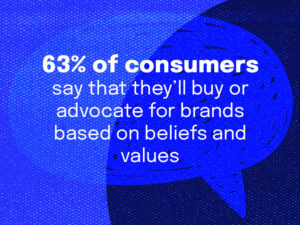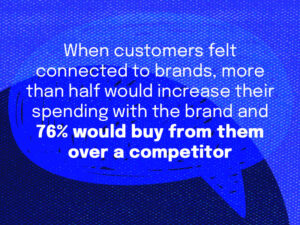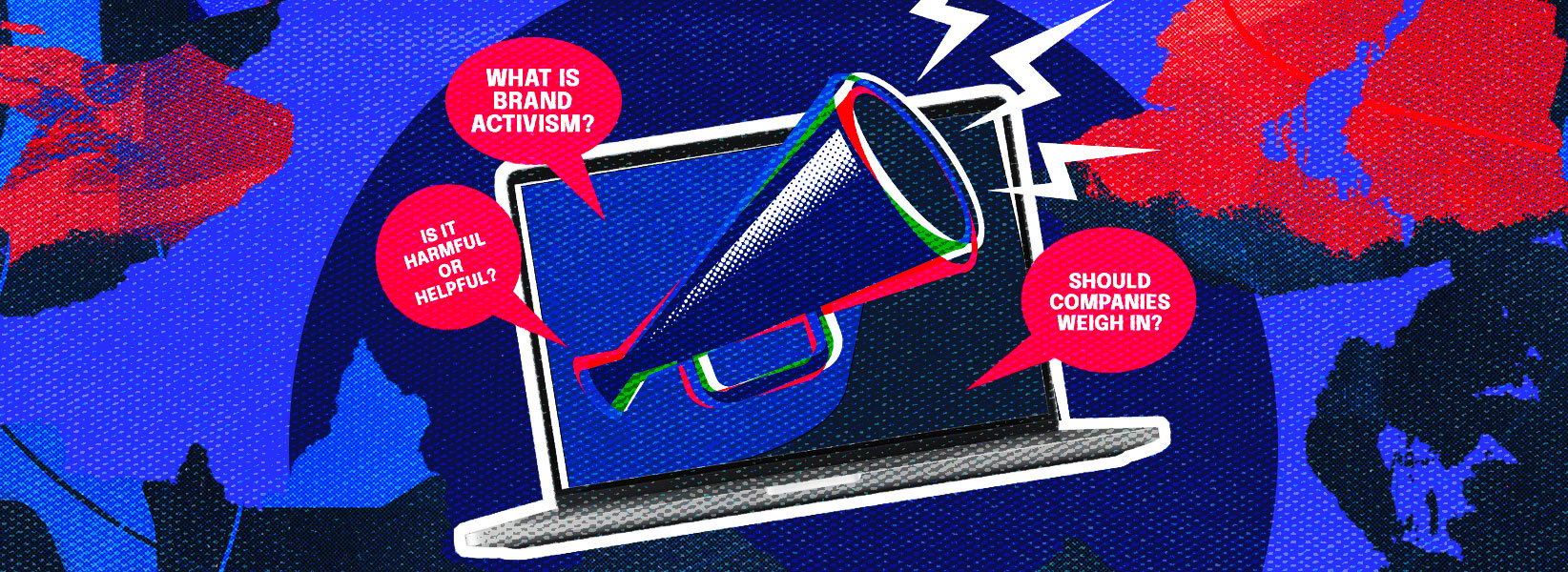Anheuser-Busch's recent collaboration with transgender social media influencer, Dylan Mulvaney, sought to generate publicity for Bud Light during the NCAA March madness tournament this spring. What resulted was an enormous controversy that sparked a mass call to boycott the brand. The overwhelming backlash that Anheuser-Busch received for working with Mulvaney will undoubtedly have significant repercussions into the future as corporations weigh the outcomes of explicitly promoting their values in marketing campaigns, or even just implicating their values as was done with this recent collaboration with Mulvaney. With a backdrop of increasingly divisive politics in the US, brands must decide whether to advocate for social issues and risk alienating some of their consumer base or remain neutral in the face of heated current events.

Brand activism isn’t new
Partisan politics appearing in marketing is not a new phenomenon. Issues like abortion rights, BLM, LGBTQ+ visibility, and gun laws are just several of the hotly debated topics that have surfaced over the past couple decades as businesses engage with brand activism. Over ten years ago, JC Penney launched a campaign that featured a lesbian couple and their daughter. The campaign was met with outrage from some, including the conservative mother’s group One Million Moms who protested the company on the basis of “protecting their children” (Block, 2012). Other brands have similarly incited controversy due to treading in political waters. For example, Disney’s CEO Bob Chapek explicitly opposed Florida’s ‘Don’t Say Gay Bill,’ resulting in Gov. Ron DeSantis’ attempt to revoke the corporation’s special land tax status. In 2018, Nike featured Colin Kaepernick in their Just Do It campaign with the message “Believe in something. Even if it means sacrificing everything” after the football quarterback kneeled in protest during the National Anthem. Nike initially lost 3% in its share prices, but within four days the brand’s online sales increased by 31% (Birch, 2022).
Consumer Brand Identification: a theoretical framework
So, is the risk of controversy and negative press worth it for these companies to engage in brand activism that could potentially generate stronger customer loyalty? From a theoretical perspective, Consumer Brand Identification Theory explains how self-identification affects loyalty (and disloyalty) to certain brands. This framework posits that agreement/disagreement between the self and the brand is the basis for consumers’ decision-making in supporting or renouncing a brand. Researchers Sourjo Mukherjee and Niek Althuzien found that brand-identification produces an asymmetric effect, contrary to previous studies demonstrating that self-brand agreement generally leads to positive marketing results (2020). That is, while self-brand disagreement regarding a brand’s values produces negative attitudes toward the brand, self-brand agreement did not generate a significant change in attitude toward the brand. This asymmetric effect on consumer attitudes and behaviors would suggest that taking a social stance only results in negative outcomes, and not vice versa.

Behaviors and attitudes in the real world
Consumer brand-identification is a strong theoretical foundation, but real people seem to have different perspectives about brand activism. According to a 2018 study by Sprout Social, almost two-thirds of consumers want brands to connect with them, regardless of political affiliation. On top of that, the survey found that 78% want brands to use their social presence to bring people together.Despite the seemingly asymmetric effects of brand-identification theory, real consumers want and expect brands to use their social platforms to spread positive values and connect people. Data from the 2023 Edelman Trust survey corroborates these results with 63% of consumers saying that they buy or advocate for brands based on beliefs and values. Consumers recognize the power of social media and are looking for companies to speak about relevant socio-political issues on their platforms.
The jury’s out…
The jury’s still out on whether activism in marketing is advantageous in the long term or if it risks driving away consumers. Some argue that brands’ addressing social issues only exacerbates political polarization and alienates customers with opposing views (Zahn, 2022). However, there is also evidence supporting the idea that taking a stance can lead to increased consumer loyalty. The Edelman survey found that when customers felt connected to brands, more than half would increase their spending with the brand and 76% would buy from them over a competitor (2023). With all this said, brands need to prioritize the issues important to their customer base to build stronger connections and ultimately increase sales. Aerie, for example, has incorporated #AerieREAL into their branding which celebrates body inclusivity and fosters much stronger customer relationships. There’s a lot to consider when connecting with and appealing to a certain consumer base – customer expectations and age demographics just to name a couple of things. Ultimately, the choice to engage in socio-political brand activism relies on building a connection with consumers, leading to greater brand loyalty and increased sales for the company.

